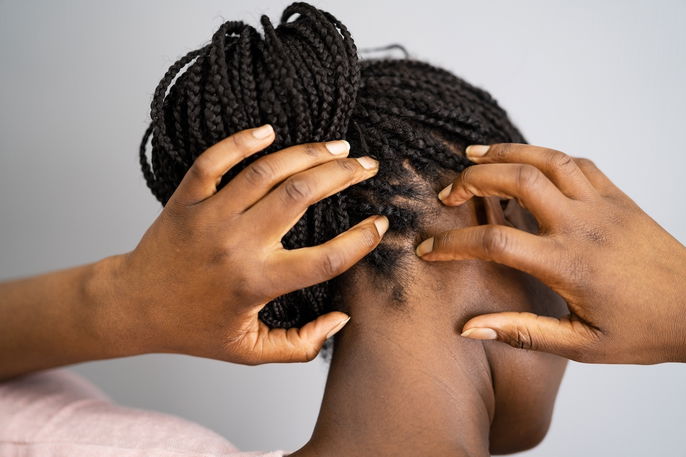Scalp tingling is not always a sign of a serious problem. It is usually just related to mild skin irritation.
However, there are cases in which tingling scalps may be a sign of other more serious health condition, like a fungal infection, dermatitis or psoriasis, These types of conditions are usually accompanied by additional symptoms, like itching, flaking or burning.
Ideally, you should see a dermatologist for assessment if the tingling is frequent, intense or lasts for over 3 days. The doctor will assess your symptoms and order testing as needed to identify the problem and start treatment as appropriate.

What causes scalp tingling?
Scalp tingling typically occurs for the following reasons:
1. Skin irritation
Some chemicals in hair products, like shampoos, styling agents and even pollution in the air or blow dryer heat can irritate the scalp. This can cause tingling, as well as flaking and itching.
What to do: It is important to identify the underlying trigger or product and avoid it whenever possible. Be sure to use a mild, scent-free shampoo when you do have irritation to avoid worsening.
2. Psoriasis
Psoriasis is characterized by the presence of red patches with white flakes. They can appear on any part of the body, even the scalp, and are associated with itching that intensifies during times of stress. Learn more about about what causes psoriasis, and other symptoms that can occur.
What to do: Psoriasis symptoms may resolve on their own without any treatment, however they may appear during more stressful periods. In some cases, the doctor may prescribe medications like topical corticosteroids, calcipotriol, topical retinoids, or salicylic acid. Some patients may also benefit from a psoriasis diet to help relieve specific symptoms and prevent flare-ups.
3. Seborrheic dermatitis
Seborrheic dermatitis is a skin problem that mostly affects the scalp. It leads to dandruff, patches with yellow or white crust, redness and intense itching. These symptoms can worsen with stress or exposure to heat or cold.
What to do: Generally, treatment involves the use of antifungal creams, shampoos, solutions or ointments to decrease skin flaking.
4. Folliculitis
Folliculitis is an inflammation of the hair root that can lead to an ingrown hair. It can cause a bacterial or fungal infection, and is associated with symptoms like pimples, burning, tingling, itching and hair loss.
What to do: Treatment for folliculitis depends on the underlying cause of it. It can be treated with antifungal solutions if it is related to a fungal infection, or antibiotics if it is related to a bacterial infection. Read more about the folliculitis treatment options, including medications, ointments and home remedies.
5. Temporal arteritis
Temporal arteritis is an autoimmune disease that causes inflammation in the arteries. It is associated with symptoms like headache, fever, muscle stiffness, and scalp tingling.
What to do: Treatment for temporal arteritis consists of corticosteroids, analgesics and anti-emetics to relieve symptoms.
6. Lice
Lice infestations are most commonly seen in school-age children. They can cause symptoms like intense itching, white pinpoint spots in the affected areas and scalp tingling.
What to do: To get rid of lice and nits, you should see a lice shampoo that contains substances that eliminate them. These shampoos are typically left on the head for a few minutes, according to manufacturer instructions. There are also specific combs you can purchase to help remove lice and nits, as well as repellents to prevent further infestations. Check out more ways to get rid of lice.
7. Fungal infection
Fungal infections on the scalp, often caused by Tinea capitis fungus, can cause symptoms like intense itching and tingling on the scalp. Some people even experience hair loss.
What to do: Generally, treatment consists of topical antifungals, like ketoconazole or selenium sulfide. If topical medications are not effective, the doctor may prescribe oral antifungals.
In women, hormonal changes from menstrual cycles, pregnancy or menopause can also cause scalp tingling. Exposure to heat or cold is also associated with this symptom.






























